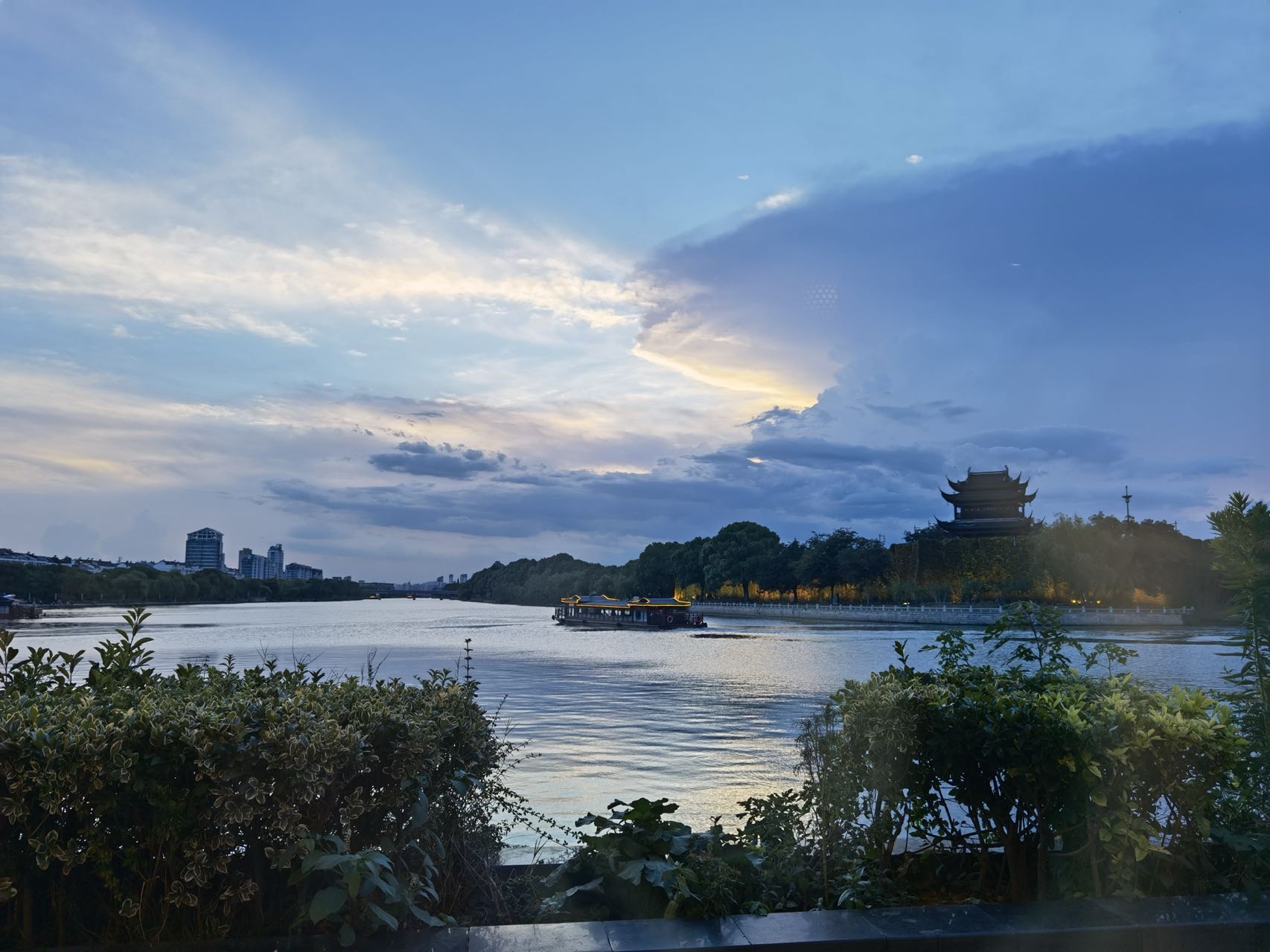New York City has long been a beacon for those seeking education, opportunities, and new horizons. As artist Benny Cruz poetically declares, “New York is the end of your past and place of rebirth,” a sentiment that resonates deeply with the countless newcomers who arrive in this city seeking not merely an address change but a realm of transformative opportunities. In the Tri-Institutional (Tri-I) community, international scholars bring diverse perspectives that enrich both research and campus life. Yet beneath the lab coats and academic achievements lie personal journeys of cultural adaptation rarely spoken about.
What does it mean to build a life between worlds? Two Tri-I internationals share their stories, revealing common threads in the tapestry of global belonging. Through their experiences, we glimpse the challenges and unexpected gifts of crossing borders in pursuit of knowledge and gain insight into the lived realities of colleagues whose journeys began thousands of miles away.
Xinyu Shen: A Temporary New Yorker
Xinyu Shen, a master’s student in Health Policy and Economics at Weill Cornell Medicine, views his time in New York as a valuable but temporary chapter before returning to China.
Born in Suzhou, China, Xinyu’s international journey began during his undergraduate years in Queensland, Australia, though the pandemic eventually forced him to return to China to complete his studies. New York represents his second significant experience living abroad, with about five months in the city so far.
A World in Miniature
“New York feels like a miniature version of the world,” Xinyu observes, noting the diverse cultural communities that coexist within the city’s boundaries. From Little Italy to various African neighborhoods to Manhattan’s Chinatown, he appreciates how the city offers a global tour within the five boroughs. He was particularly struck by the city’s density and the resulting social dynamics, noting the closer physical proximity and higher frequency of casual interactions compared to his experiences in Australia.
“In New York, there are more opportunities to talk with strangers,” he says. “Social interactions happen more naturally and frequently than in Australia.”
Cultural Puzzles and Adjustments
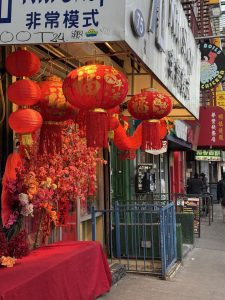
Adapting to New York’s distinctive culture has presented Xinyu with both delights and challenges. He observes that New Yorkers maintain a curious balance, working intensely during the week while firmly protecting their vacation time. Some aspects of local life continue to perplex him. “I’m shocked when I see New Yorkers running outdoors in freezing, windy winter weather,” he admits with a laugh. “Their resilience to cold is impressive.”
However, not all cultural differences are easy to embrace. “The tipping culture and hidden sales taxes reduce my desire to dine out,” Xinyu confesses. “It makes budgeting more complicated.” He also observes that “the high cost of living in New York doesn’t necessarily translate to a high quality of life, particularly regarding accommodation,” noting the stark contrast between housing standards and prices compared to what he experienced in China.
Language, Loneliness, and Finding Community
Despite his strong English skills, Xinyu acknowledges that language subtleties still affect his confidence in social settings. “In networking situations especially, I sometimes hold back because I worry about miscommunication,” he explains.
This linguistic hesitation, combined with cultural differences, has gradually changed his social patterns. “I’ve become less social and more inclined toward solitude since moving here,” Xinyu reflects. “It wasn’t a conscious choice, but a gradual adjustment.”
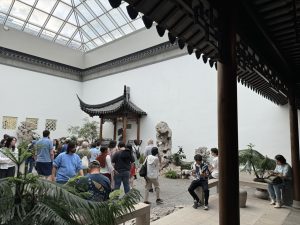
He finds himself gravitating toward others with shared cultural backgrounds. “These connections provide a sense of security when everything else feels unfamiliar.”
Like many international students, Xinyu experiences periods of homesickness. Regular video calls with his parents and partner provide essential emotional anchoring. Traditional Chinese holidays like Spring Festival and Mid-Autumn Festival, typically celebrated with large family gatherings, become moments that highlight his distance from home.
“During these holidays, I treat myself to a good meal,” he says. “Sometimes I cook at home, or I’ll explore Chinatown for food that reminds me of home. It’s important to maintain these rituals, even if they’re not the same as being with family.”
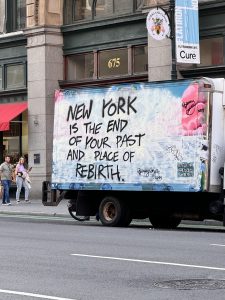
Reflections on the New York Experience
Xinyu values the personal growth his time in New York has fostered. “Living abroad forces you to become more self-reliant, to think independently, and to adapt quickly,” he explains. Still, he clarifies that New York doesn’t feel like a permanent home. He plans to bring his experiences here back to China and is particularly hoping to maintain a more balanced approach to work and life. “The way Americans separate work from leisure is something worth adopting,” he suggests.
His views on the United States have become more nuanced during his stay. “I see beyond New York’s glamorous image now,” he says thoughtfully. “Everyday life is similar across the world in many ways: people work, eat, sleep, and seek happiness.”
Xinyu’s story illustrates the often-overlooked perspective of those who come not to stay permanently, but to gain knowledge and experiences they can bring back to enrich their home countries. While New York offers valuable career growth, his heart remains in China, where he sees his future unfolding. “This chapter in New York is important,” Xinyu concludes, “but it’s just one chapter in a longer story that leads back home.”
Alejandra Urquieta: Finding Home in the Melting Pot
Alejandra Urquieta, a neuroscience research assistant in the Rajasethupathy Lab at Rockefeller University, arrived from South America seeking educational opportunities that would eventually allow her to give back to her native Bolivia.
The Journey to New York
Born in Bolivia, Alejandra first experienced cultural displacement at the age of eight when her family relocated to Brazil, a move that would shape her understanding of identity and belonging for years to come.
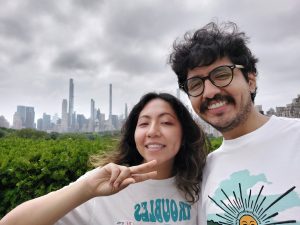
“In Brazil, I was the only foreign child in my middle school,” Alejandra recalls. “The other children made it clear I was different, and not always in a kind way. There was this constant feeling of being an outsider.”
This early experience of cultural isolation planted seeds of confusion about her identity. “I didn’t know if I was Bolivian or Brazilian,” she explains. “When you’re young and trying to fit in, these labels become incredibly important. I found myself distancing [myself] from my Bolivian roots just to feel accepted.”
A City of Outsiders
Years later, her decision to pursue neuroscience brought her to New York for college. Alejandra reflects on how the city’s distinct character has helped her reconcile her complex cultural identity. “The beautiful thing about New York is that almost everyone is from somewhere else,” Alejandra says, gesturing toward the window, where the city’s iconic skyline stretches into the distance. “Here, being different isn’t something that sets you apart; it’s the one thing we all have in common.”
This realization marked a turning point in Alejandra’s relationship with her multicultural background. The city’s celebrated diversity created space for her to embrace both her Bolivian heritage and her Brazilian upbringing without having to choose between them.
“In New York, I finally understood that cultural identity isn’t an either-or proposition,” she reflects. “I could be Bolivian and Brazilian and
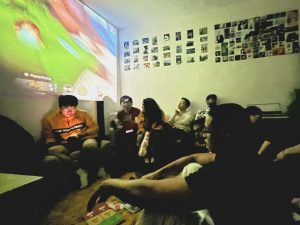
a New Yorker all at once. That permission to contain multitudes is something special about this city.”
This acceptance has allowed Alejandra to reclaim parts of her heritage she once pushed away. “I’ve found myself seeking out Bolivian community events, music, and food—things I used to avoid because they made me feel too different in Brazil,” she says. “There’s this healing that happens when you don’t have to hide who you are.”
Redefining Home
For someone whose life has spanned three countries, the concept of “home” becomes necessarily fluid. When asked where she considers home, Alejandra pauses thoughtfully before answering. “Home isn’t a place on a map for me anymore,” she explains. “It’s more of an emotional geography centered around people I love.”
Despite the physical distance from her family, with her parents and brothers still living in Brazil, technology helps maintain these vital bonds. “During my first year here, I was on video calls with my family constantly,” she laughs. “We even had this Friday night ritual—playing games or watching the same movie together despite being thousands of miles apart. It was our way of shrinking the distance.”
As time passed, Alejandra began establishing new roots in New York, creating friendships that have become another kind of family. “My friends here understand parts of my experience that even my family can’t fully relate to,” she explains. “They know what it’s like to build a life in this particular city, with all its wonderful chaos and challenges. They’ve become another kind of home.”
“Home isn’t a place on a map for me anymore. It’s more of an emotional geography centered around people I love.”
Yet Alejandra maintains strong connections to friends in Brazil as well, refusing to let geographical distance erode these important relationships. “We still share so many common interests: the same humor, the same cultural references,” she says. “These friendships give me a sense of grounding, a reminder of who I am beyond my work and daily life here.”
This balance of old and new connections has become crucial to her sense of well-being, creating a support system that spans continents and cultures.
Science Without Borders
As a research assistant preparing to apply for PhD programs, Alejandra spends her days investigating the neurobiological foundations of memory. Her work, however, hasn’t disconnected her from her cultural roots.
“Being a scientist hasn’t alienated me from my family or cultural background at all,” she emphasizes. “If anything, it’s created new connections. My family is genuinely interested in my research, even if they don’t understand all the technical details.”
This integration of scientific and cultural identities extends to matters of faith as well. Despite her family’s Catholic traditions, Alejandra has found no fundamental conflict between religious heritage and scientific inquiry.
“Faith and science answer different kinds of questions,” she explains thoughtfully. “One explores meaning and purpose; the other investigates mechanisms and processes. There’s room for both in a well-rounded worldview.”
Looking Forward, Looking Back
As Alejandra contemplates where to build a career, she considers returning to South America, but she recognizes the practical advantages of continuing her work in the United States.
“The U.S. simply has more resources for neuroscience research,” she acknowledges. “The funding, facilities, and collaborative
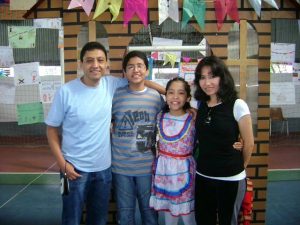
opportunities here would be difficult to match in Bolivia or even Brazil.”
Yet Alejandra’s connection to her roots remains strong, shaping her long-term aspirations in meaningful ways.
“My dream is to somehow help improve the educational systems in Bolivia and Brazil, especially in the sciences,” she says. “I believe that staying in the U.S. now will allow me to develop the knowledge, connections, and resources that will eventually make that possible.”
“New York taught me that cultural difference isn’t something to overcome; it’s something to embrace,” Alejandra reflects. “The ability to see from multiple perspectives is actually a strength, both personally and scientifically.”
This vision represents a full-circle journey, from a child who once felt rejected for being different to a scientist using her multicultural perspective as a bridge between worlds.
As Alejandra concludes, “Home isn’t where you’re from—it’s where you’re understood. I’ve been fortunate enough to find understanding in multiple places across the globe.”
Building Bridges Through Shared Experience
These contrasting stories remind us that there is no single “international experience,” but rather a spectrum of relationships with place, identity, and belonging that illustrate the transformative impact of living between cultures. Both Xinyu and Alejandra speak of expanded worldviews, greater adaptability, and a deeper appreciation for both their home cultures and the unique rhythms of New York life. Both have found ways to maintain connections across oceans while building meaningful relationships here. And both bring their multicultural perspectives to scientific questions, enriching research through diversity of thought.

